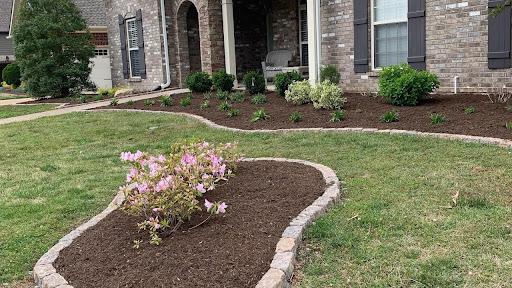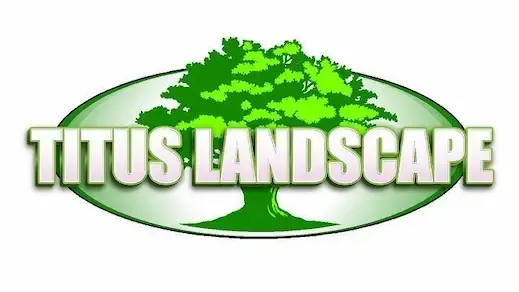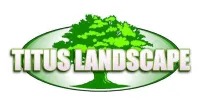Blogs

What Is DG In Landscaping?
In landscaping, "DG" stands for decomposed granite, a material often used for paths, driveways, and groundcovers due to its natural look and durability. This natural substance, formed through the weathering and erosion of solid granite rocks, has become a go-to choice for various landscaping projects due to its durability, aesthetic appeal, and practical benefits. Whether you're designing a garden pathway, a cozy patio, or an attractive driveway, DG offers a range of possibilities that can enhance the beauty and functionality of your outdoor space.
At Titus Landscape, we leverage our expertise in landscaping Murfreesboro, TN, to transform ordinary spaces into extraordinary ones using high-quality materials like decomposed granite.
Key Takeaways
Decomposed granite (DG) is a durable and visually appealing material for landscaping.
It offers high permeability, making it an eco-friendly choice.
DG comes in two types: natural and stabilized, each suited for different applications.
It's cost-effective and low maintenance, though it may have stability and dustiness issues.
DG is versatile, suitable for pathways, patios, driveways, and garden beds.
Characteristics of Decomposed Granite
Decomposed granite is a unique material with several key characteristics:
Natural Composition: DG is composed of minerals like quartz, feldspar, and mica. These minerals give DG a stable structure that is more durable than regular sand.
Permeability: A standout feature of DG is its high permeability, allowing water to drain through easily. This property helps manage water runoff, making it an eco-friendly choice for landscaping.
Types: There are two main types of decomposed granite:
Natural DG: Often used as mulch or ground cover, this type continues to weather and enrich the soil over time.
Stabilized DG: Mixed with a binding agent, this variant is more compact and suitable for high-traffic areas like pathways and patios, reducing erosion and shifting.
Uses in Landscaping
Decomposed granite is incredibly versatile and can be used in various landscaping applications:
Pathways and Walkways: DG provides a stable surface, making it ideal for pedestrian paths. Its natural look complements garden designs beautifully.
Patios and Outdoor Areas: DG can create inviting and functional outdoor spaces for seating and gatherings, adding both style and comfort.
Driveways: When compacted, DG forms a durable surface that can withstand the weight of vehicles, offering an alternative to traditional concrete driveways.
Garden Beds: DG serves as an effective ground cover, suppressing weeds and helping to retain soil moisture for plant health.
Advantages and Disadvantages
Advantages:
Cost-Effective: DG is generally less expensive than concrete or pavers, making it a budget-friendly option for many landscaping projects.
Low Maintenance: It requires minimal upkeep compared to traditional lawns or other materials.
Aesthetic Appeal: DG offers a natural look that integrates well with various landscape styles, adding a touch of elegance to outdoor spaces.
Disadvantages:
Stability Issues: In high-traffic areas, DG can shift or become compacted, requiring periodic maintenance to keep it looking its best.
Dustiness: Newly installed DG can be dusty until it is compacted and settled, which might be a concern during the initial stages of installation.
Limited Plant Support: In areas with heavy rainfall, DG might not support certain plant types as effectively as other materials.
Landscaping with Gravel
Gravel offers a versatile and cost-effective alternative to decomposed granite in landscaping. Available in various sizes and colors, it’s ideal for driveways, paths, and garden beds. Learn how gravel compares to DG and how it can enhance your landscape design.
Versatility: Various sizes and colors suitable for multiple applications.
Low Maintenance: Requires less upkeep compared to other materials.
Cost-Effective: Generally cheaper than concrete or pavers.
Drainage: Effective in managing water runoff.
Sustainable Landscaping Practices
Sustainable landscaping promotes eco-friendly outdoor spaces. By using native plants, efficient irrigation, and materials like decomposed granite, you can create beautiful and environmentally responsible landscapes. Explore these practices to enhance both your garden and the environment.
Native Plants: Reduce water usage and support local ecosystems.
Efficient Irrigation: Minimize water waste with smart irrigation systems.
Eco-Friendly Materials: Use sustainable options like decomposed granite.
Soil Health: Improve soil quality and support plant growth.
Benefits of Ground Cover Plants
Ground cover plants offer a practical solution for enhancing landscaping. They prevent soil erosion, suppress weeds, and add a lush appearance. Discover various ground cover options that pair well with decomposed granite to boost both functionality and aesthetics.
Erosion Control: Prevent soil loss and stabilize the ground.
Weed Suppression: Reduce weed growth with dense coverage.
Aesthetic Appeal: Add beauty with low-growing plants like clover and moss.
Complementing DG: Enhance the look and benefits of decomposed granite.
Enhancing Outdoor Spaces with Lighting
Outdoor lighting can transform your landscape by highlighting features and creating ambiance. Options like path lights and spotlights can accentuate walkways made of decomposed granite and add a welcoming touch to your outdoor spaces. Discover how to use lighting effectively.
Path Lights: Illuminate walkways and enhance safety.
Spotlights: Highlight key features and architectural elements.
String Lights: Create a cozy and inviting atmosphere.
Functionality and Beauty: Combine lighting with decomposed granite for a stunning effect.
Frequently Asked Questions About Landscaping
1. What is decomposed granite used for in landscaping?
Decomposed granite is commonly used in landscaping for pathways, patios, driveways, and garden beds. It offers a stable surface, enhances drainage, and provides an attractive natural look that complements various landscape designs.
2. How do I install decomposed granite in my landscape?
To install DG, prepare your landscape area by leveling the ground and removing debris. Spread a layer of DG and compact it using a plate compactor to create a stable surface. For stabilized DG, ensure the binding agent is mixed thoroughly to enhance durability and performance.
3. Is decomposed granite a good choice for driveways in landscaping?
Yes, decomposed granite is an excellent choice for driveways in landscaping. When compacted, it creates a strong surface capable of handling vehicle traffic. However, periodic maintenance might be required to prevent shifting and maintain the driveway's appearance.
4. How does decomposed granite compare to gravel in landscaping?
In landscaping, decomposed granite (DG) and gravel are both versatile materials, but DG offers a more stable surface and natural look. DG is generally more compact and less prone to shifting compared to gravel, making it a preferred option for areas with regular foot traffic.
5. Can decomposed granite be used in all climates for landscaping?
Decomposed granite performs well in various climates but may not be ideal for regions with heavy rainfall or extreme weather. In such conditions, consider using stabilized DG or combining it with other materials to improve its performance and durability in your landscape.
Transform Your Outdoor Space with Titus Landscape’s Expertise
Decomposed granite (DG) is a versatile and visually appealing choice for landscaping, offering durability and aesthetic appeal for various outdoor applications. Whether you’re enhancing pathways, patios, or driveways, DG can elevate your landscape while being cost-effective and environmentally friendly. At Titus Landscape, we specialize in landscaping Murfreesboro, TN, and are dedicated to bringing your vision to life with quality materials and expert craftsmanship.
Don’t wait—contact us now to schedule a consultation and start your landscaping project with confidence.
THE BEST IN LANDSCAPE & OUTDOOR LIVING
Get your free quote today!
Contact Us
Rockvale, Tennessee 37153
Mon - Fri 8:00 am - 6:00 pm
Follow Us
© 2026 Titus Landscape. All Rights Reserved. Privacy Policy. Terms & Conditions. Web Design by Fused Media


